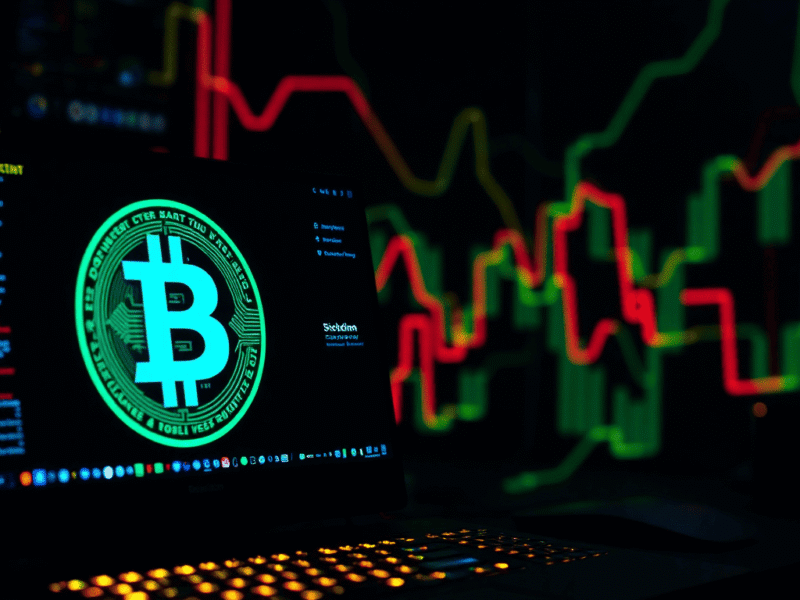In recent years, cryptocurrency has experienced rapid growth, with digital assets such as Bitcoin and Ethereum becoming household names. As the crypto market expands, it is increasingly influenced by economic and political factors that can shape trading trends and the overall landscape. This article will examine the various ways in which economic and political factors impact crypto trading, as well as providing examples and references to support these claims.
1. Economic Factors and Their Influence on Cryptocurrency Trading
1.1 Inflation and Deflation
Cryptocurrencies, notably Bitcoin, have been hailed as a hedge against inflation due to their fixed supply and deflationary nature [1]. In times of economic uncertainty or inflationary pressures, investors may turn to digital assets as an alternative store of value.
Reference:
[1] Ammous, S. (2018). The Bitcoin Standard: The Decentralized Alternative to Central Banking. Hoboken, NJ: John Wiley & Sons.
1.2 Interest Rates
Changes in interest rates can impact the demand for cryptocurrencies. When interest rates are low, traditional investments may provide less attractive returns, leading investors to seek alternatives, such as cryptocurrencies.
1.3 Economic Growth
A strong economy can boost the demand for cryptocurrencies as people have more disposable income to invest. Conversely, during economic downturns, investors may be less likely to take risks, leading to a decline in crypto trading.
2. Political Factors and Their Influence on Cryptocurrency Trading
2.1 Regulatory Environment
Regulation plays a critical role in the development and adoption of cryptocurrencies. Governments can either support or hinder the growth of the crypto market through their regulatory policies. For example, strict regulations or outright bans on cryptocurrencies can lead to a decline in trading volumes and market capitalization, while favorable regulations can stimulate growth and innovation.
2.2 Political Stability
Political stability can impact the demand for cryptocurrencies. In countries experiencing political turmoil, citizens may turn to digital assets as a means of preserving their wealth and bypassing capital controls. This can lead to increased demand and trading volumes in the crypto market [2].
Reference:
[2] Glaser, F., Zimmermann, K., Haferkorn, M., Weber, M. C., & Siering, M. (2014). Bitcoin – asset or currency? Revealing users’ hidden intentions. ECIS 2014 Proceedings.
2.3 Geopolitical Events
Global events, such as trade wars or political tensions, can influence the crypto market by creating uncertainty in traditional financial markets. Investors may seek refuge in cryptocurrencies as a way to diversify their portfolios and mitigate risks associated with these events.
Conclusion
Cryptocurrency trading is increasingly impacted by a variety of economic and political factors. Understanding these complex relationships is essential for investors and policymakers alike as they navigate the evolving digital asset landscape. By considering the effects of inflation, interest rates, economic growth, regulatory environments, political stability, and geopolitical events, market participants can make more informed decisions and anticipate potential shifts in the crypto market.
FAQs
Yo! So, when the traditional economy tanks, cryptos like BTC often become a “digital gold” for some. But, watch out! Not all cryptos react the same way.
Mate, big geopolitical events create FUD (Fear, Uncertainty, Doubt), and that can make markets super volatile. Always DYOR (Do Your Own Research) before diving in!
Absolutely! When governments flex with new regs, it can either pump or dump the market. Remember China’s ban shenanigans? Classic example!
In times of inflation, folks sometimes flock to crypto as a hedge. But remember, volatility’s the name of the game in crypto. Trade safe!
For sure! Elections and such can create major market waves. Look at Brexit – it got the GBP traders in a twist, and some of the ripples touched crypto too!
Big time! When central banks play around with interest rates or print more fiat, it can make crypto either moon or nosedive. Keep those peepers peeled!
Some peeps think since cryptos aren’t tied to any country’s economy, they’re safe from recessions. But hey, it ain’t that black and white. Stay woke!
100%! Remember March 2020? BTC and the gang took a massive hit. But then, the bull run! Always expect the unexpected in crypto.
So, when you hear about whales, we’re talking big players moving huge sums. Sometimes, they use news or political events as a smokescreen for their moves. Sneaky, right?
DeFi’s got its own groove, but it’s still linked to the broader crypto sphere. So, while it has its perks, DeFi ain’t completely immune to political drama.
For sure! Stay informed, set tight stop-losses, and don’t FOMO (Fear Of Missing Out). And hey, always remember to HODL through the storm if you believe in your assets!
Indirectly, yes. Their decisions can shift the global economic landscape, and that can make the crypto market either go parabolic or faceplant. Stay sharp!



